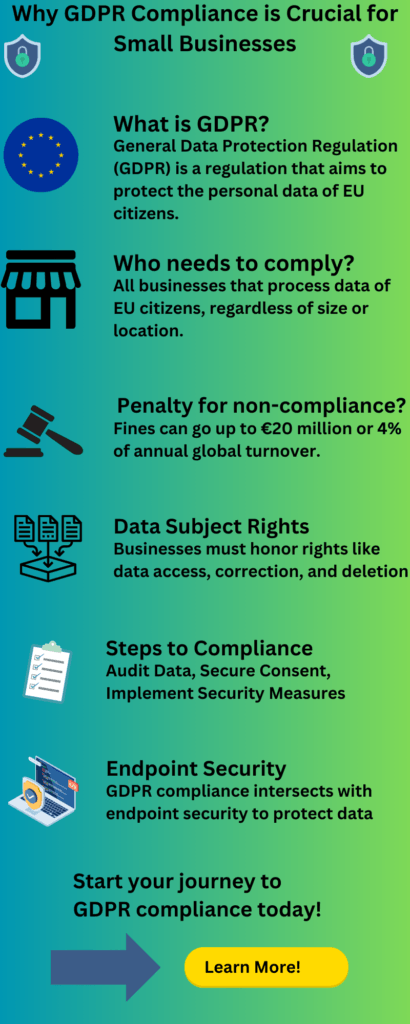In today’s digital age, data privacy and security have become top priorities for businesses, especially those in the tech industry. The General Data Protection Regulation (GDPR) is a set of regulations that aim to protect the personal data of individuals in the European Union (EU). If your business collects or processes data from EU citizens, it is crucial to understand and comply with the GDPR to avoid hefty fines and maintain trust with your customers.
Key Components of GDPR
The GDPR encompasses several key principles that businesses must adhere to when handling personal data. Some of the main components include:
Consent: Businesses must obtain explicit consent from individuals before collecting their personal data.
Data Minimization: Only necessary data should be collected, and it should be stored for a limited period.
Data Security: Businesses must implement measures to protect personal data from breaches or unauthorized access.
Transparency: Individuals have the right to access, rectify, or erase their data, and businesses must provide clear information on how data is being used.
Impact on Tech Businesses
Tech companies are particularly impacted by the GDPR due to the nature of the data they collect and process. From social media platforms to e-commerce websites, tech businesses handle vast amounts of personal data on a daily basis. Non-compliance with the GDPR can result in fines of up to 4% of annual global turnover or €20 million, whichever is higher. This can have a significant financial impact on businesses, not to mention damage to their reputation and customer trust.
Steps to Ensure Compliance
As a tech business, there are several steps you can take to ensure GDPR compliance:
Audit Your Data: Identify what personal data you collect, where it is stored, and how it is processed.
Implement Security Measures: Encrypt sensitive data, restrict access to personal information, and regularly update security protocols.
Obtain Consent: Clearly explain to individuals why their data is being collected and obtain explicit consent before doing so.
Update Privacy Policies: Ensure that your privacy policies are transparent and provide individuals with clear information on how their data is being used.
Benefits of GDPR Compliance
While GDPR compliance may seem daunting, it also brings several benefits to tech businesses. By prioritizing data protection and privacy, businesses can build trust with customers, enhance their reputation, and minimize the risk of data breaches. Compliance with the GDPR also demonstrates a commitment to ethical data handling practices, which can attract new customers and partners who value privacy and security.
Conclusion
Overall, GDPR compliance is essential for tech businesses to thrive in today’s digital landscape. By understanding the key principles of the GDPR, taking proactive steps to ensure compliance, and reaping the benefits of data protection, tech companies can navigate the regulatory landscape effectively and safeguard the personal data of their customers.
